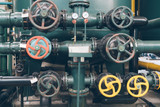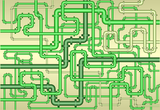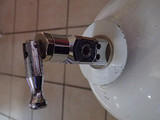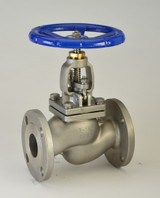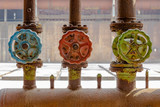Our Posts
View AllBackflow Prevention Devices
According to the American Backflow Prevention Association, 24 gallons of asphalt emulsifier, intende …
Read MoreTop 10 Swing Check Valves by Model & Manufacturer
Looking for reliable swing check valves? Discover the top 10 models from leading manufacturers like …
Read MoreWhat is a Spool Valve and How Does It Work?
Spool valves are incredibly useful. They are a simple directional control valve used in hydraulic an …
Read MoreWhat is the cracking pressure of a check valve?
Check valves, regardless of their individual design, serve the specific purpose of permitting the fl …
Read MoreSmart Water Valves: Futuristic Flow Control Technology
Leaks can range from annoying to devastating, and the longer they go unaddressed, the more costly th …
Read MoreHow to Calculate Flow Rate In Water Systems
Flow rate is critical in water systems, from simple home plumbing to complex industrial water system …
Read MoreWhat Is a Valve Pressure Rating? Definition and Guide
Pressure ratings are important considerations when designing a system that uses valves, but they can …
Read MoreSpecial Pricing and Services for OEM - the ValveMan Valve Store
OEMs or Original Equipment Manufacturers make up a large portion of our clients at ValveMan. With th …
Read MoreData Cooling Centers and Sanitary Valves
Overheated data centers pose a massive challenge, and the global data center cooling market is growi …
Read MoreValve Maintenance Best Practice Guide
A Guide to Safer, Long Lasting Valves Valves are found in most piped systems that move liquids, gas, …
Read MoreValve Materials for Gaseous Oxygen Service
Oxygen may seem safe because it is colorless, tasteless, and odorless, but in the wrong conditions, …
Read MorePneumatic Actuators Valve Types
Have you ever stopped to think about what makes an automated assembly line push, pull, lift, and rot …
Read More-320°F Liquid Nitrogen Cryogenic Control Valve Setup
Need a valve that can handle -320°F liquid nitrogen without freezing up — and still control flow? He …
Read MoreWhy Fall is the Perfect Time for Valve Maintenance (And What Happens If You Wait)
We're well into fall now, which means it's time for that conversation nobody wants to have: winter p …
Read MoreFrom the DMZ to Bonomi: Rick Wentzel’s Valve Legacy
In the inaugural episode of the Fully Open podcast, host Gil Welsford sits down with Rick Wentzel of …
Read More
Check Valve vs Backflow Preventer Comparison | ValveMan
If you need to make sure that fluid in your pipe system flows in one direction only, and prevent rev …
Read MoreDifferent Types of Gas Shut Off Valves | ValveMan
Whether you're upgrading your residential gas system, looking for the best gas shut off valve for yo …
Read MoreGlobe Valve vs Ball Valve Comparison Guide | ValveMan
Valves are widely used in industrial and manufacturing facilities, but they’re also used in utilitie …
Read MoreNEMA Ratings Explained | ValveMan
Have you ever wondered what that little NEMA number on your electric actuator meant? Or perhaps, you …
Read MoreGate Valve vs Ball Valve Comparison Guide | ValveMan
Valves are widely used in industrial and manufacturing facilities, but they’re also used in utilitie …
Read More
 888-825-8800
888-825-8800










